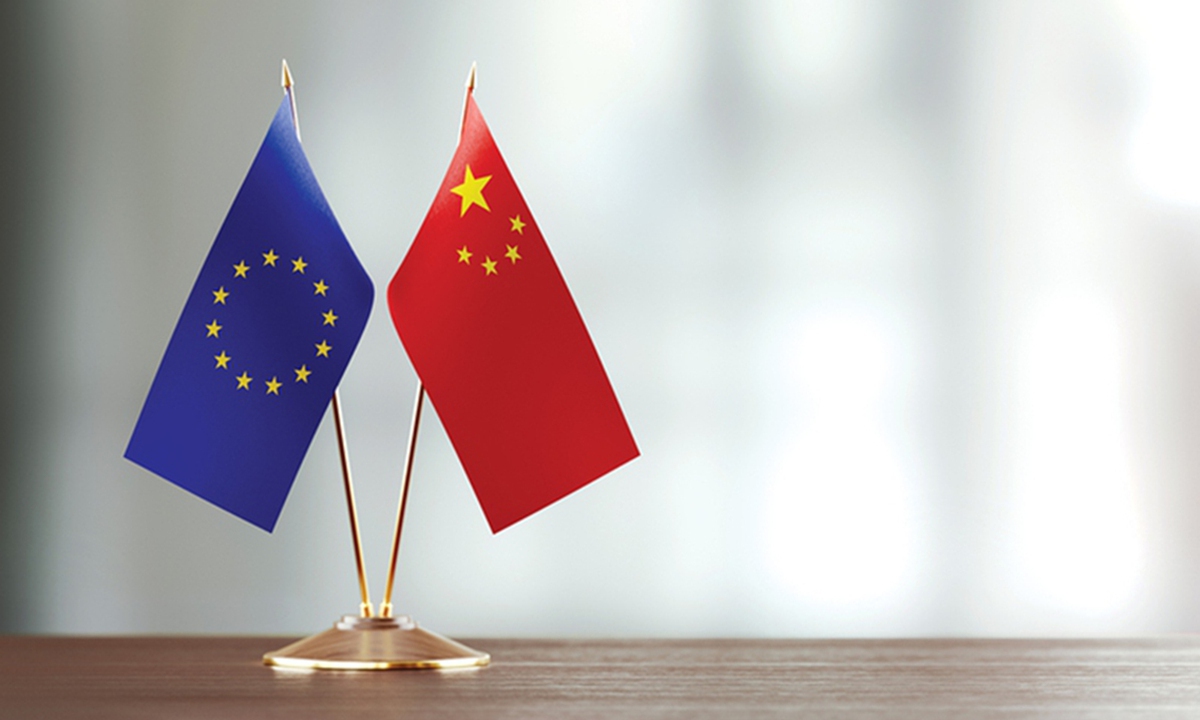
China EU Photo: VCG
The EU has agreed a new trade defense tool allowing it to retaliate against countries using punitive measures, the Financial Times reported on Tuesday. China was singled out in the report, which said the EU anti-coercion instrument can be used to counter "China's block on Lithuanian imports over the Baltic state's relationship with Taiwan."
Since no EU official or statement has explicitly mentioned China as a retaliation target, it remains uncertain to which extent the report can represent the EU's position over the dispute between China and Lithuania.
Let's be clear: While the EU has the right to use trade tools deemed necessary to defend the bloc's interests, it doesn't mean it can recklessly misuse these measures to support Lithuania's mistakes when it comes to the Taiwan question.
Some in the EU might mistakenly see the protection of Lithuania as a show of EU's unity, but it is Lithuania itself that has broken the EU's unity in the first place. Therefore, any move to follow the hegemonic logic of confusing right and wrong could lead to regrettable political decisions that undermine China-EU relations.
While some Western media outlets and European politicians have gone to great lengths to elevate Lithuania's political provocations over the Taiwan question into the EU's economic and trade sphere, the fact about who is the culprit for intensified tensions between China and Lithuania is crystal clear and there is no room for any change of concept.
It is Lithuania that has breached the one-China principle by allowing the establishment of a "representative office" under the name of "Taiwanese" in Vilnius. This has clearly constituted a political trampling on China's core interests and grossly interfered in China's internal affairs. Supporting the secessionist forces on the island of Taiwan is a serious political provocation that cannot be confused with economic and trade issues.
Moreover, Lithuania has no position and no right to use its own mistakes to hijack the EU's China policy. Lithuania's deliberate provocations against Beijing on the Taiwan question are also a sabotage of the joint foreign policy and solidarity of the EU, which respects the one-China principle. The EU should punish such rule-breaker, instead of protecting it. Otherwise it will set a bad precedent. Tolerance of such practice could sow the seeds of policy division and chaos in the bloc.
If the EU not only turns a blind eye on Lithuania's provocations against China, but also helps the Baltic nation to push back against China, it would cause serious consequences for China-EU relations.
How can anyone ask China and Chinese companies to maintain and develop normal trade relations with Lithuania after the latter trampled on China's bottom line and challenged its sovereignty? Political tension is bound to lead to difficulties in bilateral trade. After China downgraded its diplomatic relations with Lithuania to the level of charge d'affaires, it is totally understandable that Chinese companies reduced or terminated cooperation with Lithuanian businesses.
If the EU was deemed as supporting its member state to provoke the one-China principle, then it will cause overall damage to the political and economic relations between China and the EU. It is not in the EU's economic interests to derail China-EU economic and trade cooperation, especially when the bloc's economy is facing multiple major predicaments such as high inflation, economic slowdown, energy shortage, bank crisis, and frequent labor strikes among others.
Therefore, it is hoped that the EU could act with caution when it comes to the dispute between China and Lithuania, and urge the Baltic nation to correct its mistakes instead of going further down the wrong path.




